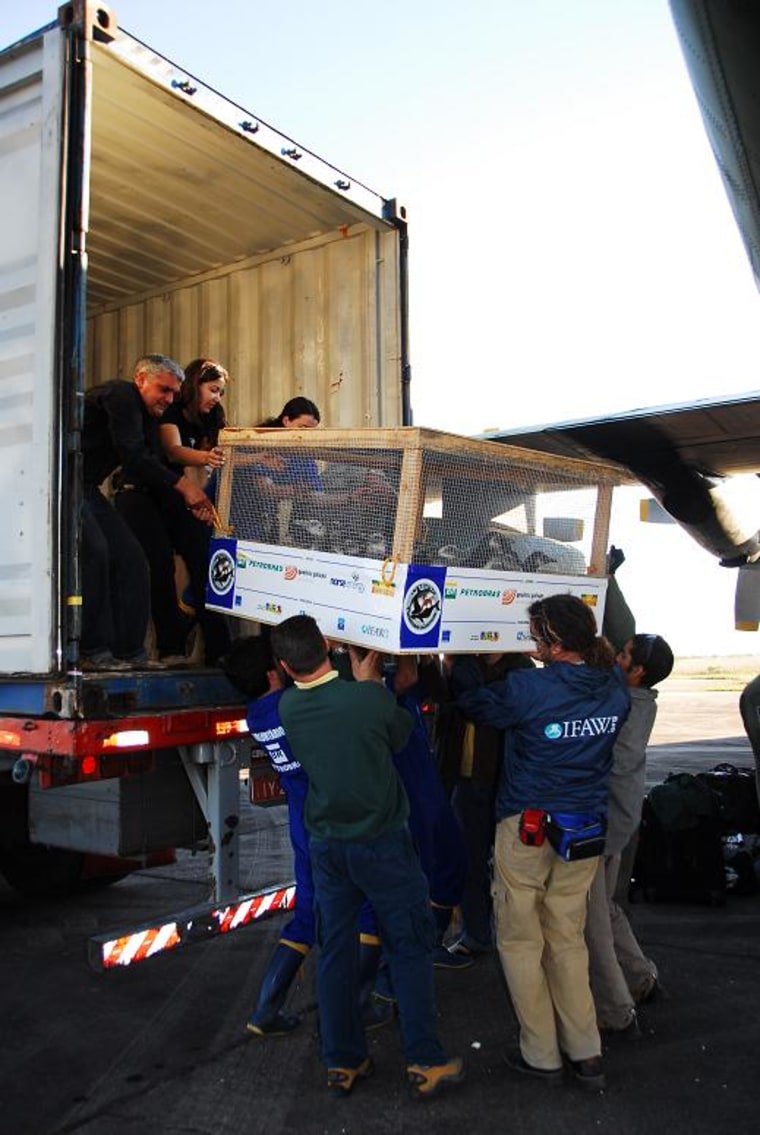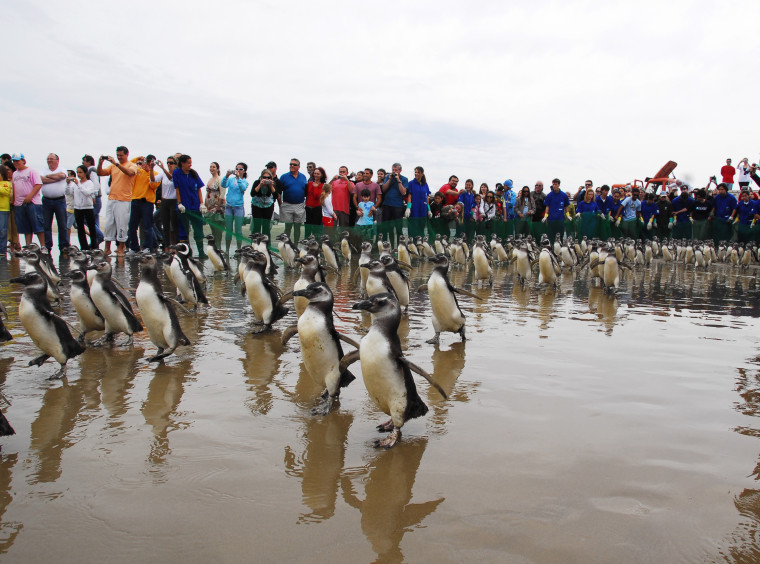Antarctica is famous for its march of the penguins and the hit documentary that the migration inspired, but Brazil can now lay claim to a penguin feat of its own: Hundreds of rescued juvenile Magellanic penguins were flown 1,500 miles to the south of Brazil where they were released back into the ocean.
The penguins had been found in recent weeks on beaches in Salvador, a city in Brazil's far north and well outside the normal range of the species. Magellanic penguins typically migrate from their breeding colonies in Argentina and Chile only as far north as southern Brazil.
A flow of warmer ocean water might have caused the juvenile penguins to keep swimming north and eventually strand themselves on beaches due to exhaustion and a lack of food. Some were found covered in oil from their long journey through shipping lanes and offshore oil rigs.
Dozens were also found dead on the beaches of Salvador and other towns. But the survivors were quickly picked up, and on Friday a Brazilian C-130 Hercules military aircraft shuttled them from Salvador to beach town in southern Brazil.
On Saturday, the juveniles were introduced to some rescued adult penguins and released as a group — the hope being that the more experienced penguins would lead the flock of 373 penguins back south.

It didn't take long for the group to waddle into the sea and then swim off, encouraged by dozens of well-wishers on the beach in Pelotas, Brazil.
The release mission was undertaken by Brazil's Marine Mammals Institute and the International Fund for Animal Welfare.
"We are overjoyed to see these penguins waddle back to the ocean and have a second chance at life," Valeria Ruoppolo, IFAW's Latin American emergency coordinator, said in a statement. "Hundreds of penguins died in this unusual event and while media reports have often linked global warming to the penguins' demise, at this point there is no way to know for certain why these animals stranded."
Each penguin had a band attached to a flipper so that scientists working at the penguins' breeding grounds can track their migration patterns over time.
